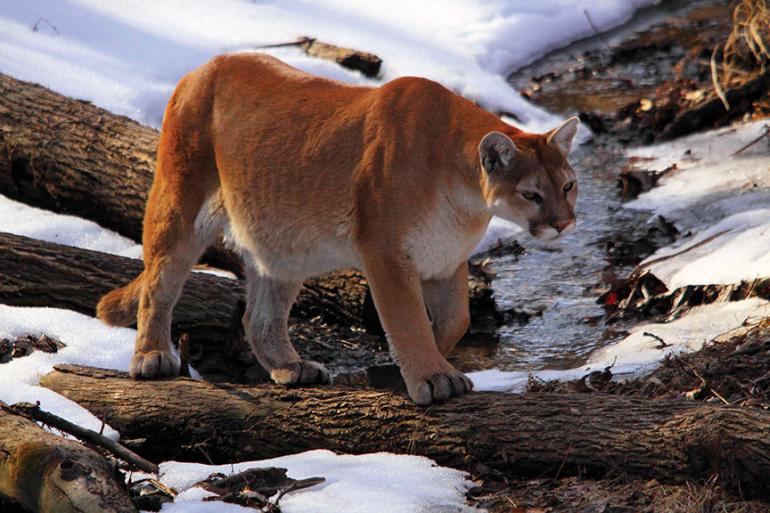Lions in our Midst
Stealthy, independent, and elusive predators, mountain lions (or cougars) are unique creatures. While highly adaptable to different environments, mountain lions can live just about everywhere in Montana. In 2013, mountain-lion sightings were reported several times on the outskirts of Bozeman and Butte—one bold cat even entered a home in Wilsall.
The Basics
Mountain lions can easily travel great distances—an adult male’s territory can range up to 350 miles. They are attracted to areas with lots of easy prey and lots of places to hide (i.e., cover from bushes or other large flora). They most commonly feed on deer, but also eat elk and smaller animals like rabbits. Attacks on humans or domesticated animals as a food source are rare, but become more likely when lion and human habitat begin to overlap.
Adult female mountain lions weigh anywhere between 85 and 130 pounds, while adult males can weigh between 120 and 180 pounds. As a testimony to their efficiency as hunters, mountain lions often take down prey two to three times their size. Young lions, or kittens, usually leave their mothers between the ages of one and two. At that time, they are forced to hunt for themselves and establish their individual territory. It is highly unusual to see two adult lions together.
Low-Tolerance Policies
FWP maintains a policy not to capture and relocate mountain lions found within urban areas for a number of reasons. Habituation to humans, dogs, and house cats can only spell trouble for the future of relocated mountain lions, people, and pets. Habituated lions will continue to seek out easy food sources they have become accustomed to—especially surrounding a habitat rich with prey (i.e., havens for deer like large alfalfa fields, subdivisions, etc). It is important to remember that mountain lions are predatory meat eaters, not scavengers.
If You Encounter a Mountain Lion
Pick small children off the ground right away and don’t run. Face the lion, make noise, or yell and do what you can to enlarge your image (make it think you are the predator, not the prey). Fight back with anything you can. Many people have survived attacks by fighting back with rocks, sticks, or even their bare fists. Please report any mountain lion sightings to Region 3 Headquarters at 994-4042.
Andrea Jones is the former FWP Region 3 Information & Education Program Manager.













